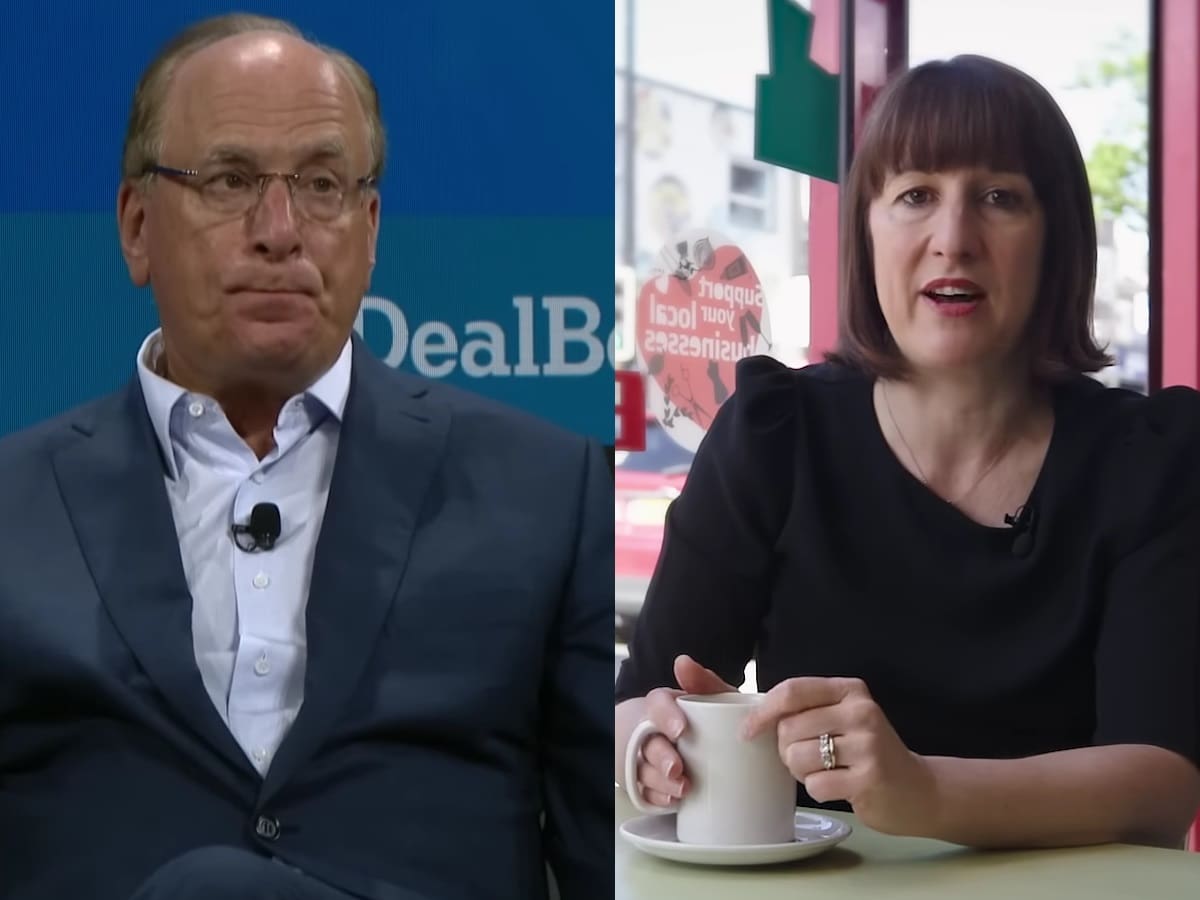Rather than publicly financing infrastructure and essentials we know we need through our sovereign currency, the Labour Party is opting for private finance from asset managing companies like BlackRock after the general election.
Shadow chancellor Rachel Reeves has set up a new British Infrastructure Council. This includes bosses from banks Lloyds, HSBC, Santander UK, and bosses from private financers Phoenix, Fidelity, and BlackRock.
The capitalist arrives as your friend with Labour
Reeves said:
Under the right conditions, there are significant pools of private capital available to finance investment in critical national infrastructure, such as clean energy, transport and digital connectivity – all of which will serve to boost growth, raise productivity and create jobs
In chorus, BlackRock CEO Larry Fink said:
First, we need pragmatism in financing. By 2040, the world will need to spend $75tn repairing old and building new infrastructure. Asking taxpayers to shoulder $75tn of new debt is not something countries can reasonably do.
The capital markets aren’t always a good alternative to public financing, but they are in this case. The current supply of private investment for infrastructure is $1tn, and BlackRock projects this is going to be one of the fastest growing segments of the capital markets.
But Fink presents a false choice here. Apparently, it’s either the government borrows from the private sector to invest through selling bonds, or the private sector invests directly and extracts profit from infrastructure and services.
In reality, the government has a fiat currency. Our currency has not been linked to a system of gold standard since 1971. Government borrowing is simply a form of corporate welfare. The aim is also to stifle an expansion of the public sector, where we should stop attaching debt to the financing of public services.
The actual constraints on government spending are the resources, expertise and manpower available.
If spending causes inflation, the government can use progressive taxes to bring that inflation down. That’s because taxes destroy money, making it more scarce and more valuable.
When push comes to shove, we can publicly invest
The Bank of England and the government made their ability to invest clear during the pandemic, delivering hundreds of billions in quantitive easing (QE).
QE is where the Bank of England creates money for the government to spend (although they do add the unnecessary step of buying government bonds).
Of course Fink, the private financers and their politicians don’t want people to know this. Fink has backed Starmer for prime minister, saying:
I’m very pleased to see how the Labour Party in the UK went from an extremist party with a Marxist leader to Keir Starmer who has shown real strength as a moderate Labour party.
Corbyn’s offer was actually far from Marxist and was premised on public ownership of essential public services, while the private sector handles the demand for non-essentials. The removal of profit from public services and infrastructure makes them cheaper to build and run for people and businesses that operate in the real economy.
Indeed, at a breakfast meeting in mid-June, Reeves’ British Infrastructure Council admitted the aim of socialised losses, privatised profit:
Executives at the breakfast discussed ways in which the UK Infrastructure Bank and the British Business Bank, both taxpayer-owned, could be liable for the first loss on complex and long-running projects
Labour and the Tories have no answers.
Featured image via New York Times Events – YouTube and Rachel Reeves – YouTube




